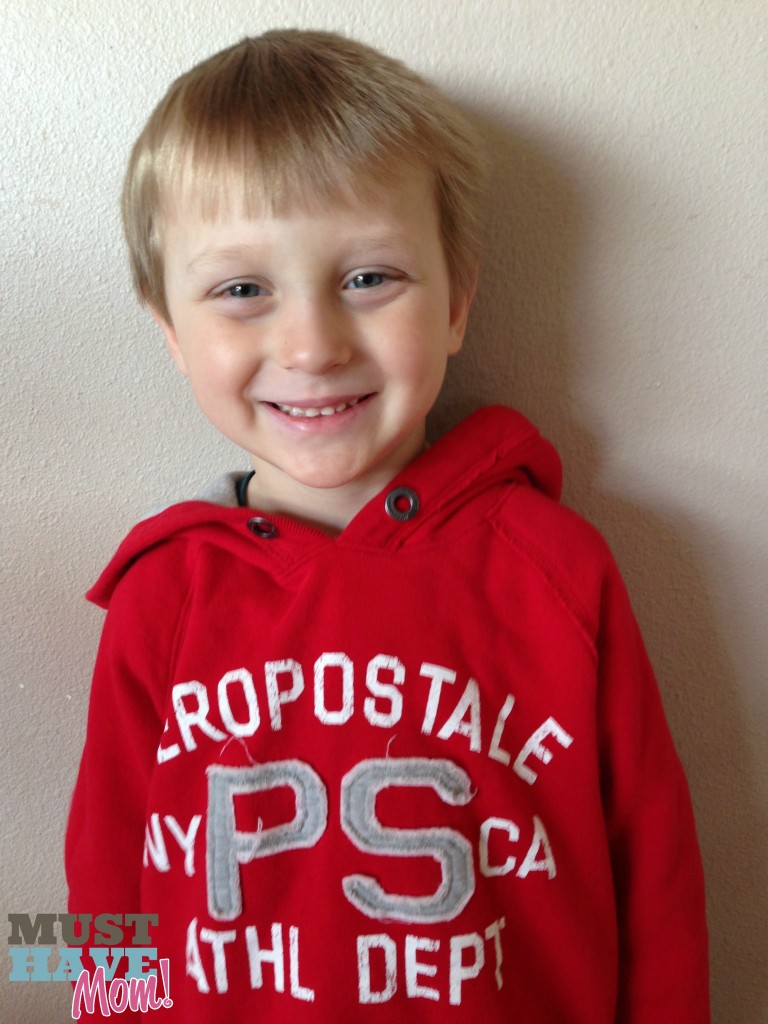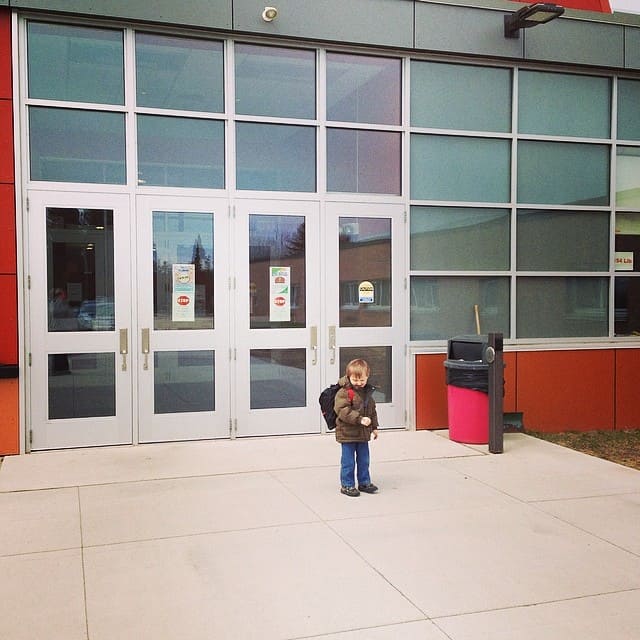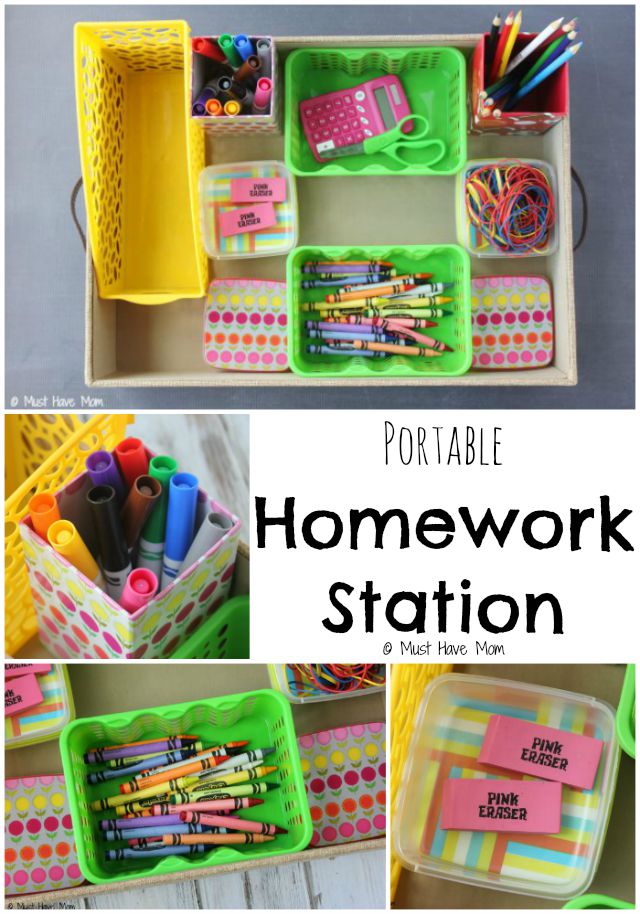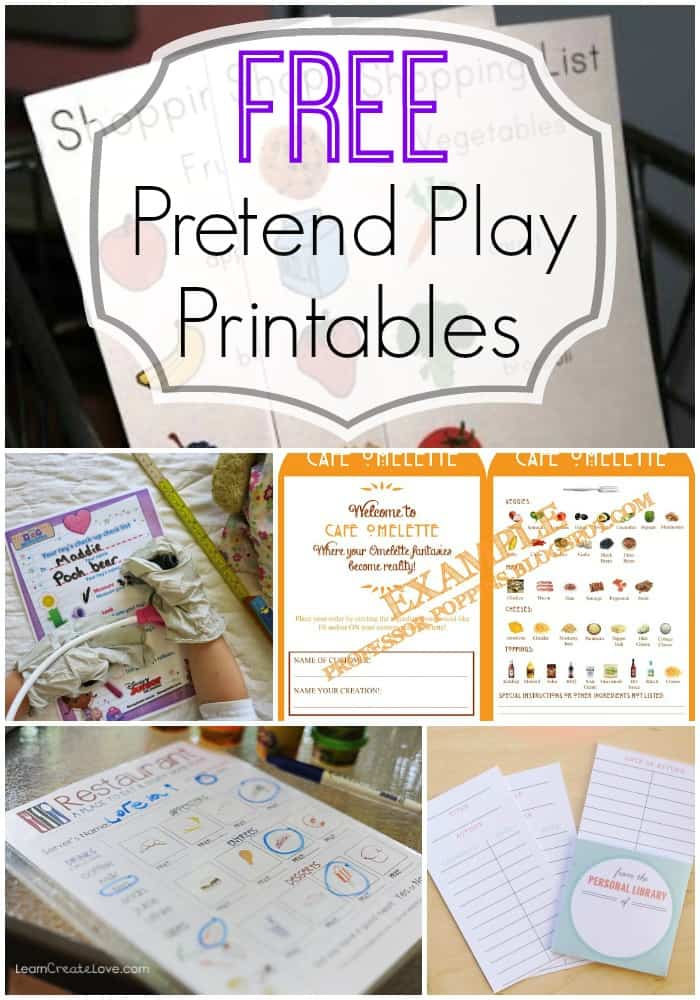Sending A Child With A Peanut Allergy To Preschool
My four year old son Aiden has a life threatening peanut allergy. He was diagnosed with it when he was a year old. His Birthday is a few days before Christmas and after he turned one we had reached the age when he could try peanut butter for the first time. He had a eaten some muddy buddy cereal mix once and so the second time he had peanut butter I didn’t think much of it. The cookie he ate that contained peanut butter immediately caused him to break out in hives all over and I watched as his neck and face started to swell and puff up. I immediately suspected the peanut butter was the culprit. What I didn’t know at the time was how much that moment would change how we faced life with Aiden. The world around us suddenly became a very dangerous place with unknown territory and a lot to learn.
We had Aiden officially tested for his allergy to peanuts and it came back positive. It was indeed the cause of his allergic reaction. We hoped he would outgrow it and now here we are three years later and each year he has been re-tested his levels continue to rise with no indication that he is near outgrowing it. Less than 20% of kids outgrow their peanut allergy and peanut allergies are the most life threatening of all food allergies. It has become something that we have learned to live with and it’s become Aiden’s normal.
Next year Aiden will be old enough to attend preschool two full days a week. We live in a very small, country town with not a single peanut allergic child in attendance at the school. This has presented us with challenges and decisions. Do we send him to school or home school him? Do we trust the school to keep him safe? Will the other kids bully him because he is different? As a parent I feel like I’m handing over control and in Aiden’s case it is a life or death matter. It hasn’t been an easy decision and it hasn’t been one that my husband and I take lightly. We’ve been working with his school for two years now to develop a plan to keep him safe. Yesterday Aiden went to a class for kids entering preschool next year. It was only 3 hours long and it is twice a week but for the parent of a peanut allergic child that is a BIG step. I said extra prayers over him and was elated to see him walk through the door with Daddy at the end of his day. He had a blast and I’m so glad that we are on the road to allowing him to attend preschool.
I had the opportunity to interview Dr. Kristie Rivers, Bundoo Pediatrician and she was gracious enough to share insight on things to consider when sending a peanut allergic child to preschool:
Q.) My 4 year old son Aiden has a life threatening peanut allergy. As we are preparing to send him to preschool next year there are many concerns. What is your best advice to keep a child with a peanut allergy safe at school when they are still young to manage their own allergy?
A.) For any parent whose child has a life-threatening allergy, sending them to school can be frightening and overwhelming. However, by creating a partnership with your child’s school, you can hopefully feel that you are sending him into a safe environment. First and foremost, you need to educate yourself on your child’s allergy by talking with your child’s doctor, reading reputable sources, and understanding when and how to give epinephrine if the need arises. Only then will you be able to communicate your child’s needs to the school. Communicate openly with your child’s teacher, school nurse, and the school administration before the start of school about the particular allergy and what foods he needs to avoid. Help them understand what an allergic reaction looks like in your child (hives, vomiting, etc.) so they will be able to recognize if your child has been exposed. Your child’s pediatrician or allergist can provide you with an Emergency Care Plan, which delineates in detail what the school should do in the event your child shows any symptoms. And of course, always have at least one epinephrine pen readily available in your child’s classroom or school office, making sure the date on the package has not expired (remember, they only have a shelf life of one year). You can even train your child’s teacher to use the epinephrine pen, being sure to let them know that nothing bad will happen if they use it unnecessarily, but if they do not use it when they should, it could be fatal to your child. Some schools will label classrooms “peanut free” if there is a child with an allergy, and you can certainly advocate for this in your child’s school. Simply sitting your child at a “peanut free” table may not be enough to protect him, and may only serve to isolate him from the other children in the class. If the school wants more information on food allergies, www.allergyready.com is a great resource to recommend for staff training.
Q.) How can we teach other children that do not have food allergies about food allergies and the importance of empathy for those with a food allergy as opposed to bullying children with food allergies?
A.) There are some great programs and books written for children that explain the concept of food allergies on their level. The Food Allergy Research and Education website (www.foodallergy.org) has a great program geared specifically toward children. Their “Be A PAL” program teaches children how to be a good friend to children with food allergies. They explain food allergies in child friendly language, encourage kids not to share food, to wash hands frequently, and to tell an adult if their friend with an allergy becomes sick. I encourage all parents to check out these types of sites and see if the information can be presented in you child’s classroom. Hopefully, by educating children at a young age, this will prevent the bullying that is usually seen once children approach middle childhood and adolescence.
Q.) Why do you believe food allergies are on the rise? Is there a cause that you believe has contributed to it?
A.) Studies show that food allergies continue to rise but scientists have yet to pinpoint a single cause. Scientists think it is possibly because our lives have become “too clean.” In other words, because our western culture is so focused on being sterile and sanitized, our immune system does not have a chance to develop properly. As a result, it looks at certain foods as “foreign” and the body develops an immune response to certain trigger foods, such as peanuts, eggs, milk, etc. Even though we as pediatricians tell parents to delay certain foods such as eggs and peanuts until children are out of infancy, even this practice is being questioned recently. It is now though that perhaps this practice is in fact, contributing to the problem. The jury is still out on what is the proper time to introduce these types of foods, so stay tuned!
Q.) What is the best way to educate parents that do not have a child with a food allergy? I find that so many parents are uneducated about food allergies and it leads to wrong assumptions and ignorance about the safety concerns of the child with food allergies.
A.) As a parent, consider it your job to advocate for your child’s health, and do not be shy to do so. Let all of the parents in your child’s classroom know that your child has an allergy and ask them to notify you before offering any type of food to your child. Your child’s teacher can also play a key role in educating other parents about food allergies. Consider asking the teacher to send home a letter in the beginning of the school year letting parents know that a child in the class has a food allergy. Such a letter can help promote the idea of teamwork in managing your child’s allergy. You might even want to become a “room mom” in your child’s classroom so you can have a better idea of the outside food that may be brought into the classroom for snacks, birthday parties, and special occasions.
Q.) What are the best methods to teach children with food allergies about their allergy without making it sound too scary?
A.) It can be a difficult balance to make sure a young child understands the serious nature of their allergy without making them fearful. However, it is vitally important to help your child understand the seriousness of the issue. From an early age, you can begin to teach your child to avoid certain foods and to never share food with classmates. Also, teach him to never accept homemade goodies from friends. Be sure to encourage frequent hand washing with soap and water before and after meals to prevent exposure to food allergens. Just as importantly, help your child understand how he feels if he ingests the allergen, and help him know how to describe his symptoms to an adult if he is feeling sick.
Whether you have questions about your own child’s food allergies or any other concerns, you can visit Bundoo and ask a Pediatrician your questions and get expert answers! It’s a fantastic resource for parents and can serve as a way to get expert answers during untimely events. Remember the last time your child was sick in the middle of the night and you debated whether or not to bring them to the Doctor? Yup, it comes in handy for that too!
Do you know a child with a peanut allergy? How has it affected your view on food allergies?










Our kids go to school with other children with food allergies. We are very careful to not send them to school with any nuts- we would want our children treated the very same way if they were the ones with allergies. Thanks for sharing your story.
oh my goodness I could not even imagine the stress that puts on parents each day. We’re not ‘close’ with anyone that has a peanut allergy, but we’ve had some in our kids club at church (3 & 4 year olds) and it’s always a challenge to keep a close eye on them and make sure during snack time that they only eat the snack they bring from home rather than sharing with the other kids.
My daughter has some food allergies, but not as bad as your son. It was scary sending her off to school for us- I can’t imagine how stressful it will be for you! There is some great info in this post.
Those are some great steps to take. I can’t imagine the terror of sending him off into the world with such an allergy. I know that there is a child in my LIttle Miss’ school and because of that the whole PreK is peanut-free…
Great tips and information. My daughter’s classes are peanut free but I wouldn’t send peanut products to school anyways, just in case. It must be a lot harder for you as the parent of the only child with a peanut allergy in the school.
When I was pregnant I ate tons of PB for all three pregnancies, and I gave my kids PB at maybe 8 months? I didnt realize there was a waiting period! Thankfully, non of them had an allergies to that food..wheat yes, but not nuts.
That is scary. I would inform everyone involved. Maybe they can send a letter to all the parents.
That’s really tough and scary. I can imagine it would be extremely stressful. I know I’d worry a lot! He’s adorable by the way!
great post, kids and allergies are never easy, esp with school involved! So scary sometimes!
my son is one of the few who have outgrown. no idea how we got lucky. i do have my own theory that allergies are on the rise because of the things they put on crops to make them perform better, etc — and those paired w the plants are causing the allergies. allergies didn’t exist back when i was a kid like this and i’m only just now turning 40
I can’t even imagine the worry you must feel, especially since he’s the only one in the district with it. It was interesting to read what he said about food allergies being on the rise.
How horrifying!!! I have heard the schools are really strict around here to keep peanuts OUT of schools. I hear more and more about these allergies!
A food allergy makes it tough for kids. However, most schools have really stepped up regarding what they allow and their procedures for those with allergies.
This is a great post. For those of us, who don’t have kids with allergies, we still need to understand.
I am so grateful I don’t have to face the peanut allergy. The whole Dairy allergy issues has been bad enough. Our school hasn’t worked with me on that one. In fact; every government agency has worked against me with my child’s Dairy allergy. And it’s made me a bit bitter and frustrated. I can’t even imagine if they had something worse and more life threatening like a peanut allergy.
This is so helpful to parents with kids with peanut allergies and those without to understand more. So those without can be more sympathetic and helpful for the mom’s who have kids with peanut allergies.
I have so many allergies, but the baby’s allergies have not appeared yet. Hopefully they never do!
With there being so many allergies our school created the peanut table. As some of the kids reactions are so severe! My daughter will pack a peanut free lunch just to sit with her friend.
This is such great and helpful information for people that directly experience peanut allergies and for others to understand. Thanks for sharing this with us!
That must be really scary. We have a small school & I don’t know anyone with peanut allergies.
these are some great tips, you can never be too careful. Thanks for this.
My heart goes out to you! It can be so hard to send our kids off to school for the first time, but adding in allergies makes it all that much more scary! It sounds like you are doing everything you can to prepare!
I know someone that has a daughter with a peanut allergy. So scary! Thanks for sharing this information.
Thanks for the informative post! I try to be very conscious of those with allergies when I send food in with my son to school
My best friend’s son has a peanut allergy. WE are very careful what we have in the house
We have so many friends with severe food allergies. It can be scary I know. Great Q & A here!